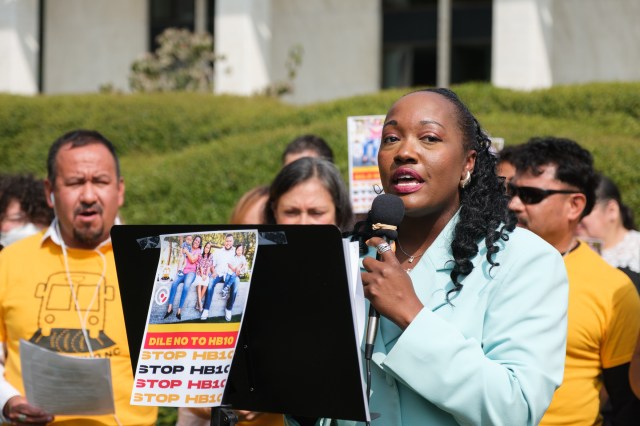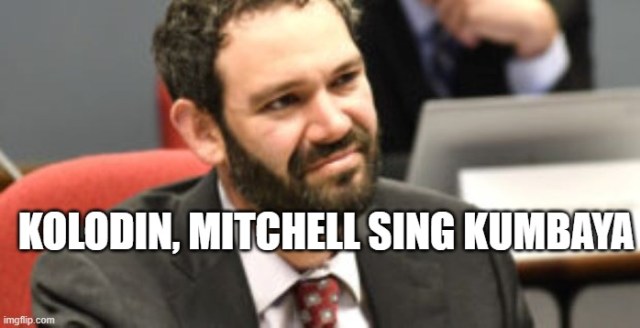El Colectivo NC, a membership group of various Latino grassroots organizations, staged a news conference on Monday, an hour ahead of the Senate taking up House Bill 10. State legislators and community activists protested both the U.S. Immigration and Customs Enforcement detainer language and the Opportunity Scholarship vouchers.
When any person is confined in a county jail or similar facility, an attempt must be made by a jail administrator to determine if the prisoner is a legal resident of the United States, according to HB 10. Previous versions of this bill limited an administrator to verify legal status during a felony or impaired driving offense.
“These are our neighbors that are being attacked and targeted,” Sen. Natalie S. Murdock, D-Durham, said. In a message she later delivered on the Senate floor, Murdock reiterated that congressional Republicans have not taken action to reach a bipartisan agreement to secure the Southern border and that HB 10 is a political game that doesn’t offer a real solution.
“We cannot ignore the profound harm HB 10 will cause,” Pilar Rocha-Goldberg, president and CEO of El Centro Hispano, said. “This bill not only strips away immigrant rights but also destroys the trust between law enforcement and our communities.”
Rep. Renée A. Price, D-Orange, called the bill “insidious” and added it places an unacceptable burden on local law enforcement.
Rep. Marcia Morey, D-Durham, noted that HB 10 would allow sheriffs to hold individuals for 48 hours after serving their sentence or posting bail, and that such an act is “unconstitutional” and will likely be challenged in the court system.
“Sheriffs are independent, constitutionally elected officials,” Morey said. “They should not be subservient to the legislative body [telling] them what they should do for their job.”
Later in the afternoon on the Senate floor, Sen. Danny Earl Britt Jr., R-Robeson, defended the legislation which hadH been brought to the Legislature in different iterations before. The impetus for the renewed effort, he said, is the severity in drug and sex trafficking at the border.
“We also know as state legislators there’s little we can do about it other than voting for the right person in November,” Britt said, adding that what legislators can do is compel sheriffs — “… Our sheriffs who are not complying with immigration [laws], our sheriffs who are releasing folks back into the community that are violent individuals charged with violent crimes that are here illegally” — to take the step of identifying a prisoner’s legal status.
Britt said the bill doesn’t “round people up” or send law enforcement into the homes of law-abiding individuals, but it does require a 48-hour detainment for those charged with violent felonies and misdemeanors.
“Until about 2018, every sheriff voluntarily cooperated with ICE,” Rep. Destin Hall, R-Caldwell, said in a committee meeting in April. “There’s a small number of sheriffs, probably around 10 or so, who don’t honor ICE detainers. Some sheriffs don’t even communicate with ICE at all.”
“It is a common sense bill,” he later added. “It is still to me, amazing, that we even have to have a bill like this.”
For questions or comments, or to pass along story ideas, please write to Matthew Sasser at [email protected] or contact the NC Insider at [email protected] or @StateAffairsNC




